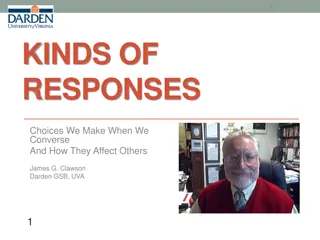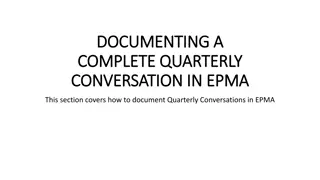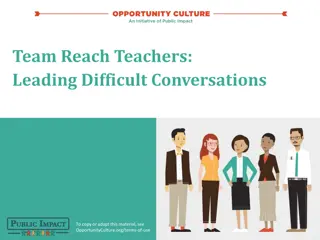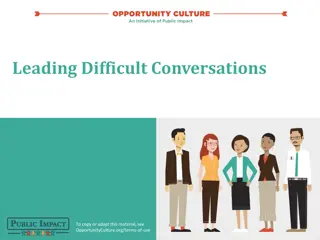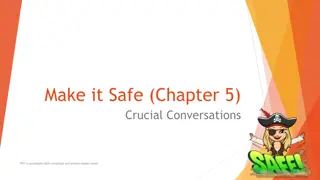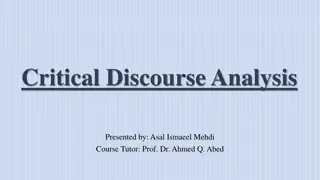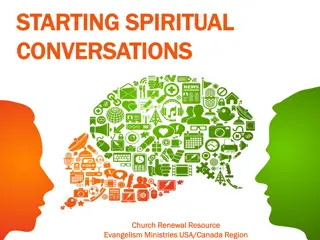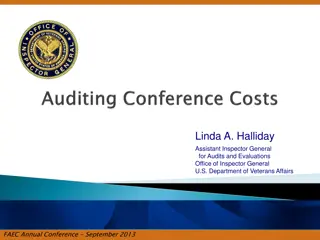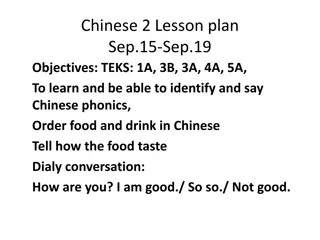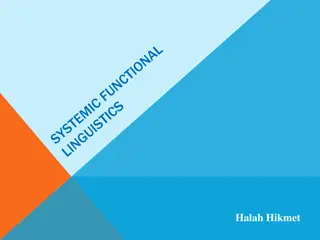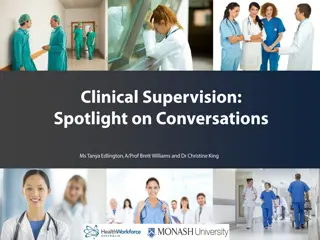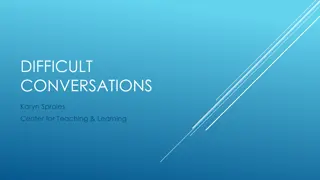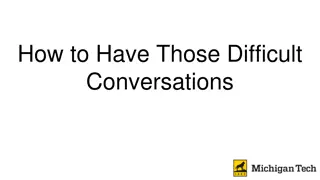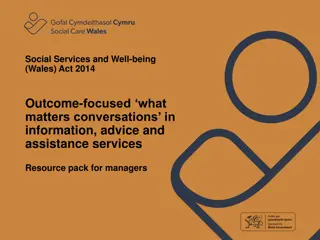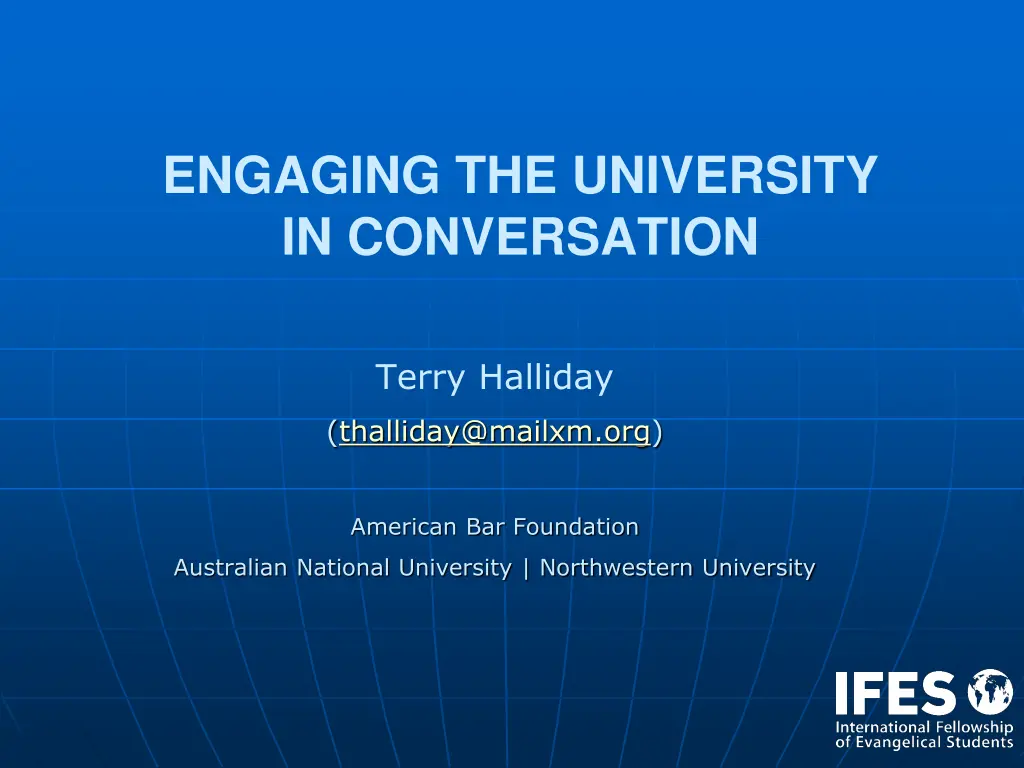
Exploring Conversations and Disciplinary Topics in University Settings
Delve into the essence of engaging conversations within universities, the core of teaching and research, and the three premises related to Christian meaning in academia. Discover what conversations entail, what they are not, and how they embody Christian virtues. Additionally, explore disciplinary topics ranging from biosciences to electrical and chemical engineering, including discussions on artificial intelligence and ethical implications.
Download Presentation

Please find below an Image/Link to download the presentation.
The content on the website is provided AS IS for your information and personal use only. It may not be sold, licensed, or shared on other websites without obtaining consent from the author. If you encounter any issues during the download, it is possible that the publisher has removed the file from their server.
You are allowed to download the files provided on this website for personal or commercial use, subject to the condition that they are used lawfully. All files are the property of their respective owners.
The content on the website is provided AS IS for your information and personal use only. It may not be sold, licensed, or shared on other websites without obtaining consent from the author.
E N D
Presentation Transcript
ENGAGING THE UNIVERSITY IN CONVERSATION Terry Halliday (thalliday@mailxm.org) American Bar Foundation Australian National University | Northwestern University
Teaching & Research Core of the University Textbooks Articles Classrooms Books Online courses Reports Labs Conferences Fieldwork sites
Three Premises God is everywhere in the university Universities are a unique site of ministry God has given faculty/grad students a rare calling to bring Christian meaning to the university
I. What is a Conversation? An exchange An expression of inquisitiveness An expression of wonder A relation-building experience
II. What a Conversation is not A lecture A debate A diatribe A sermon
III. Conversations as Christian Virtue Humility Encouragement Patience Mutuality Respect
IV. Disciplinary Topics 1 Biosciences/ Life sciences Engineering Sustainability and use of resources -- energy and environmental issues Gene editing and bioethical questions Water conservation, sustainability, supply of clean water Intellectual property as it applies to bio techniques and genetically modified living things How to find solutions to these issues? How are we treating our samples, lab animals? Who do they really belong to?
IV. Disciplinary Topics 2 Electrical & Chemical Engineering Computing Human-computer interactions Deep neural networks Strong artificial intelligence (AI) - what is intelligence? What are we striving for? Is it even possible anyway? If it's possible, we need to ask the big ethical questions. Artificial intelligence Virtual reality The big question of technological advancement is it helping us? How does it affect how we relate? How do we use it and encourage the good things that come out of it? The study of our own limits - computability theory - where does this strong AI question lie with respect to computability?
IV. Disciplinary Topics 3 Humanities Social Sciences Open-mindedness to all perspectives What is human nature? Rational choice theory Tension between structures and human agency Inequality and power; how do we change inequality? Sexuality how fluid is it? Which family structures are healthy? Integration of people coming from diverse backgrounds Focus on the marginalized fighting against the systemic oppression of these groups, and finding cohesion
IV. Disciplinary Topics 4 Physics, Earth Sciences Climate change how to address it; how to reduce emissions; protection of humans in climate changehow to affect policy Drones Oil prices and Middle East Problem of inducing seismic activity with our activities e.g., fracking
V. Who are our Intellectual Conversation Partners? Friends A. Christian students B. Christian faculty C. Non-Christian faculty D. Other campus groups that care E.
VI. Types of Graduate Student/ Faculty Conversations Cross-disciplinary issues Forgiveness U of Chicago Light Northwestern University Human rights U of Queensland, Australia
VII. CONVERSATIONS AS THEOLOGICAL ENCOUNTERS? How do we learn to think Christianly? The Asymmetry problem: High competency in academic pursuits Low theological competency
Virtues 1. Virtues Beatitudes Matt 5: 2-9 Fruits of the Spirit: Gal 5:22
Theologies a. A Theology of Creation b. A Theology of Reconciliation/Redemption c. A Theology of Revelation
Themes Beauty Creativity Oppression Awe Justice Order
Intersections: Cross-Disciplinary Issues x Themes Peace Love Justice Awe Beauty Creativity Climate change Biological diversity Nano- technology Textual interpretation Public Health
International Panel on Social Progress Master values Charity Well-being Basic rights and liberties Freedom Basic needs Esteem Justice Reconciliation
VIII. CONVERSATIONS AS ACADEMIC SKILL DEVELOPMENT Demands are changing: Academic skills that make a difference: Teaching Presentational effectiveness Research Listening Alumni / Publics Questioning / Interviewing
IX. CONVERSATIONS AS ACADEMIC SKILL DEVELOPMENT Learning to think critically Learning to distill ideas and arguments Learning to present to generalist audiences Learning to interview others
Presentations for the People we hook people we discern the big picture we translate we use visuals we tell stories we have a punch line
Listening For the problem For emotion For the big divides, debates For handles to help me grasp complexity
Questioning Postures: Naivete Eagerness Situate myself why I am interested? Find a connection or lack of one . Questions of: Simplication Clarification Methodology/Data
Challenges How do conversations work in educational settings that seem to open little space for them? How can GFM staff act as CONVERSATIONAL FACILITATORS

